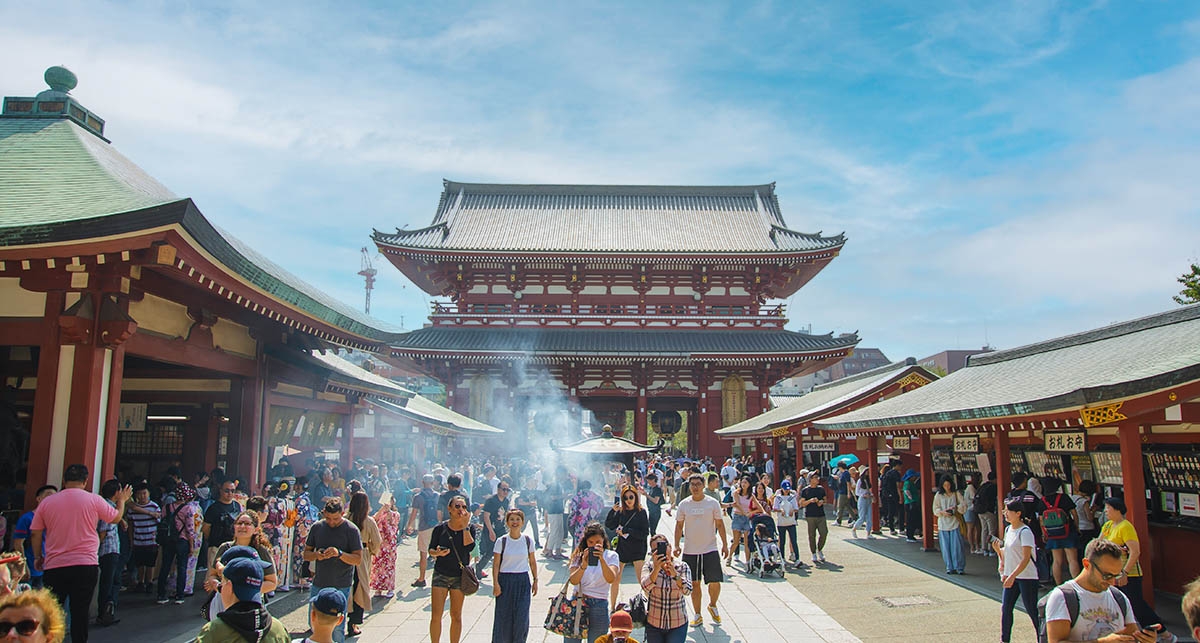
Exploring Japan’s Rich Culture and Landscape: The Ultimate Guide to the Canadian Working Holiday Visa
Japan, a country renowned for its ancient traditions and cutting-edge modernity, offers a tapestry of experiences that have enticed travelers for decades. For Canadian youths seeking an immersive experience, the Japan working holiday visa provides an unparalleled opportunity to live, work, and explore the Land of the Rising Sun. Let’s dive deep into this unique journey.
1. Understanding the Japan Working Holiday Visa
Before we immerse ourselves in Japan’s culture and landscape, let’s understand the basics of the Japan Working Holiday Visa:
Eligibility: This visa is exclusively available to Canadian citizens aged 18 to 30.
Duration: Valid for one year, this visa provides flexibility for travelers to work and support their stay in Japan.
Purpose: Unlike traditional work visas, the primary purpose is not employment but cultural exchange. This visa allows Canadians to experience Japanese life while having the option to work.
2. Japan’s Cultural Hotspots
While living in Japan, make sure to explore the cultural jewels that the country has to offer:
Kyoto: Once Japan’s capital, Kyoto is a city frozen in time. Visit the mesmerizing temples, stroll through the Geisha district of Gion, and soak in the ambiance of traditional tea houses.
Tokyo: From the historic Asakusa district with its iconic Senso-ji Temple to the buzzing neon lights of Shibuya, Tokyo offers a blend of the old and new.
Osaka: Experience the warmth of Osakans, savor street foods like takoyaki (octopus balls) and okonomiyaki (savory pancakes), and explore the majestic Osaka Castle.
3. Landscapes that Mesmerize
Japan’s natural beauty is as diverse as its culture:
Mount Fuji: Japan’s iconic peak is not just for postcards. Whether you’re climbing to its summit or admiring it from a distance, its beauty remains unparalleled.
Japanese Alps: For those passionate about hiking, the Japanese Alps offer scenic trails, pristine rivers, and tranquil onsens (hot springs).
The Islands of Okinawa: Dive into crystal-clear waters, experience a unique Ryukyuan culture, and relish the tropical ambiance.
4. Working Opportunities for Canadians
With the Japan Working Holiday Visa, Canadians can seek employment to sustain their journey. Here are some popular choices:
English Teaching: Many Japanese schools and institutions look for native English speakers to teach. This not only provides a steady income but also offers cultural exchange opportunities for students and staff.
Hospitality: From hotels to ryokans (traditional inns), there are myriad roles available, especially if you have basic Japanese language skills.
Farm Work: Experience rural Japan by working on farms, which often offer accommodation and meals in exchange for work.
5. Navigating the Language Barrier
While Japanese is the dominant language, it’s feasible to get around with English, especially in larger cities. However, learning basic Japanese phrases can enrich your experience and open more doors.
Language Schools: Enrolling in a short-term language course can enhance your communication skills and deepen your cultural immersion.
Tech Aids: Apps like Google Translate can be invaluable for on-the-spot translations.
6. Embracing Everyday Japan
Beyond sightseeing and work, it’s the everyday experiences that make a stay in Japan truly enriching:
Onsen (Hot Springs): Experience the therapeutic Japanese ritual of bathing in natural hot springs.
Festivals: From cherry blossom viewings to Gion Matsuri in Kyoto, Japan’s festivals offer deep insights into its traditions.
Food: Savoring local delicacies like sushi, ramen, and tempura is an experience in itself. Explore local markets, dine in izakayas (Japanese pubs), and experiment with regional cuisines.
7. Practical Tips for Canadians
Accommodation: Consider staying in guesthouses, shared houses, or even temples for a more authentic experience.
Transport: Japan’s rail network, especially the Shinkansen (bullet train), is world-class. Invest in a Japan Rail Pass for unlimited travel.
Healthcare: While Japan offers excellent healthcare, ensure you have comprehensive health insurance during your stay.
Networking: Join expat groups or local meetups to make friends, get advice, and share experiences.
8. Etiquette and Manners: Integrating Smoothly
Japan is renowned for its cultural nuances and etiquette. Respecting these subtleties can make your stay smoother and more enjoyable. For instance, when entering someone’s home or certain traditional accommodations, it’s customary to remove your shoes. Bowing is not just a greeting but a sign of respect, gratitude, and humility. The depth and duration of the bow can convey different meanings. When dining out, remember to say “itadakimasu” before eating – a way of expressing gratitude for the meal. Mastering these little gestures can earn you a lot of goodwill from locals.
9. Exploring Beyond the Beaten Path
While cities like Tokyo, Kyoto, and Osaka have their undeniable charm, Japan’s true essence often lies off the beaten path. Towns like Takayama in the mountainous Hida region offer a glimpse of the rural Japan of yesteryears. Islands like Naoshima blend art and nature seamlessly, while the snowy vistas of Sapporo during the Snow Festival are ethereal. Venturing into these less-trodden areas can provide a richer, deeper understanding of Japan’s multifaceted culture, giving you stories and memories distinct from the usual tourist experiences. Remember, every corner of Japan has a tale waiting to be discovered.
Conclusion: A Journey of Discovery
The Japan Working Holiday Visa offers Canadians a gateway into a world where tradition and modernity coalesce. Whether you’re teaching English in Tokyo, farming in Hokkaido, or simply soaking in an onsen in Kyushu, this journey promises memories that will last a lifetime. Embrace the challenge, delve deep into the culture, and let Japan’s landscapes and traditions carve indelible impressions on your heart.
Image Credit: Pexels










